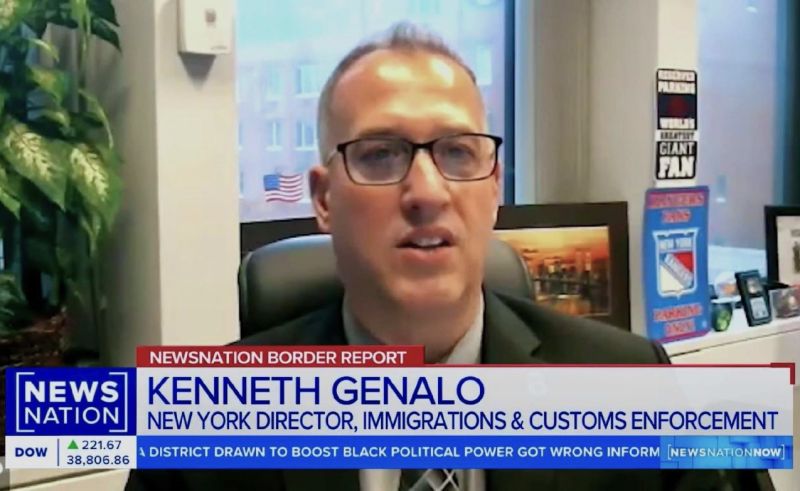|
Getting your Trinity Audio player ready...
|
NYC ICE Director Sounds Alarm Over Migrant Criminals Amid Sanctuary Policy Challenges
Edited by: TJVNews.com
Thousands of criminal migrants are freely roaming the streets of New York City, according to Kenneth Genalo, the head of U.S. Immigration and Customs Enforcement’s (ICE) NYC field office. In his first interview since Donald Trump’s election, Genalo shared with The New York Post his deep frustration over sanctuary policies that hinder ICE’s ability to deport criminal migrants. “In New York City, it would take a lifetime to clear the city of the criminals that we have if the status quo remains the same,” Genalo stated, underscoring the challenges his office faces.
As regional director overseeing nearly 400 staff members, Genalo explained to The New York Post that ICE must prioritize its limited resources on the most egregious offenders. “The fact is that I have to focus all of my resources on the worst of the worst,” he said, acknowledging that the number of migrant criminals in the city is likely in the thousands. Nationwide, ICE data revealed that of the nearly 7.8 million illegal immigrants in the United States, 662,586 are either convicted felons or have pending criminal charges.
New York City’s sanctuary policies, which bar local law enforcement from cooperating with federal immigration authorities, are a key roadblock to ICE’s efforts, Genalo told The New York Post. These policies, initially implemented under former Mayor Bill de Blasio in 2014 and further expanded in 2018, prevent the NYPD from collaborating with ICE, even in cases involving dangerous migrants.
Genalo expressed dismay at the repercussions of these rules. “The only people they’re shielding are the criminals, and they’re shielding the criminals from us,” he said. He added that sanctuary policies disproportionately harm vulnerable populations, including migrant women and children, who are often victims of crimes perpetrated by fellow migrants.
Genalo highlighted the tragic case of Georgia nursing student Laken Riley, murdered by an illegal migrant who had been in custody in New York City on child-endangerment charges but was released due to sanctuary policies. Critics of these policies, as noted by The New York Post, argue that such outcomes might have been prevented if federal authorities had been allowed to intervene.
New York City has faced an overwhelming influx of migrants since the spring of 2022, with more than 223,000 migrants arriving in the city. According to the information provided in The New York Post report, at least 58,000 of these individuals remain in taxpayer-funded shelters. While ICE has not disclosed the exact number of criminals among these migrants, the strain on resources is evident. Genalo emphasized the need for additional funding and personnel to address the growing backlog of cases.
Genalo refrained from detailing how ICE would operate under Trump’s upcoming administration but expressed optimism about potential policy changes. Trump has pledged to launch a mass deportation of illegal, criminal migrants once sworn in as president in January. Genalo’s frustration with current sanctuary policies has reached the point where he is considering testifying before the New York City Council to “educate” its progressive members about the harm these policies inflict on communities.
“The majority of these crimes are being committed against the most vulnerable people in the community, and that’s the migrant females and the migrant children,” Genalo told The New York Post, questioning how sanctuary policies could be seen as beneficial.
While Mayor Eric Adams has publicly called for loosening sanctuary rules to allow cooperation with ICE for migrants suspected of serious crimes, he faces opposition from the City Council’s far-left majority. Genalo acknowledged the mayor’s willingness to engage with federal authorities, telling The New York Post, “The mayor knows we need to cooperate. He sees what’s going on in New York City, and he wants help from the federal government.”
However, the lack of political support within the council makes meaningful policy changes unlikely in the near term. Genalo warned that without significant reform, the challenges posed by criminal migrants will persist, leaving ICE to grapple with limited resources while addressing the most severe cases.





